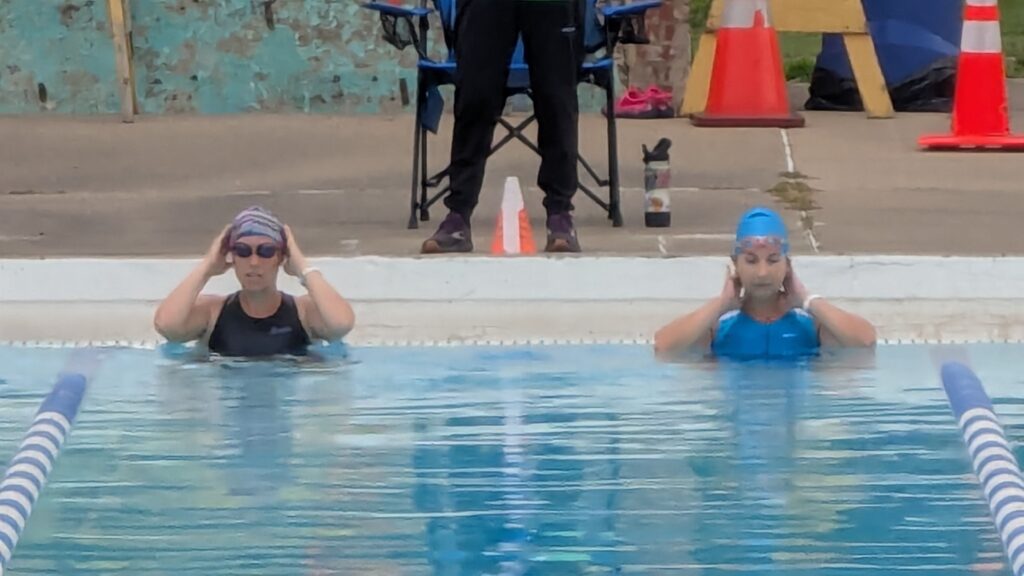It’s 9:30 a.m. on a Sunday morning. I’ve already been awake for the better part of five hours. The air is warm and muggy as I navigate through uneven terrain of rocks, mud, sand, and tree roots. I’ve just swallowed a second gnat.
Yet I’m exactly where I want to be, here on this twisting, narrow path through the woods. Slogging through the humid air, feeling my muscles beginning to protest what I’m putting them through.

This was my second chance. This was redemption for last summer, when a torn hamstring a few weeks before the triathlon made participating as an athlete impossible. Now I was back, relying on my training and preparation to carry me through this time.
I wore the same tri suit as I had 11 years before, when I’d done my first and only previous triathlon. I rode the same bike, my trusty red Trek on which I’d had many adventures (and misadventures).
But my mindset was different. I was more determined. More grateful to be present. I no longer took my mobility for granted.
For much of the previous twelve months, running any distance more than a mile had been intensely uncomfortable, if not impossible. During that time, I often berated myself for not running further, faster, or more often. I held the 10-mile jogs I used to do from Capitol Hill down the National Mall, across the Potomac, and through Georgetown as the standard of excellence. And that mental picture meant that by comparison, every run I made fell far short. I felt defeated before I could even get myself to the playing field.
Then one day, as an experiment, I decided to stop treating my body as the enemy. Because it wasn’t. I might not be able to replicate the level of performance I’d done the past, but I was still capable of an awful lot. Instead of issuing critiques, I allowed my inner voice to start cheering me on.
This mental shift – along with a medication change, time away from running, and a triathlon training program that very gradually increased intensity – enabled me to start reclaiming my ability to run short distances. And it felt good.
Sometime between the day I began training and the morning of the event, I reached a mental and physical tipping point. Training became not a punitive obligation, but a celebration of the possible. I decided to stop fixating on the gap between what I could do and what I wanted to do. Instead, I’d appreciate my own capabilities.
Because wasn’t that all what we’d come here on this July morning to do? To race against ourselves. To find achievable challenges, and embrace them. To recognize that others were doing the same.
I lost track of how many strangers called “Great job!” “Keep it up!” “You’ve got this” as I made my slow progress through the woods. Sometimes their encouragement did result in me picking up the pace. Other times, I moved to the side and let them pass.
Because even getting here was something. I had made the time to train five days a week. I had put in hours at the pool (and my arms and shoulders were nicely toned to show for it.) I’d done the hard climbs on my bike, I had made the sweaty runs. All so I could get across the finish line this morning.
And when I got there, I’d celebrate.
And I did. I saw Peter in the distance and heard his cheers, along with a friend ringing an enormous cowbell. I smiled. I picked up speed, running across the finish. There were hugs, gulps of water, congratulations. And for myself, pride in a job done not perfectly, but well.
My tri suit, after over a decade in service, is headed for retirement. But that doesn’t mean I’m done. I’m already thinking about next year.
1 Comment
You go, girl! 💪 Really proud of you!